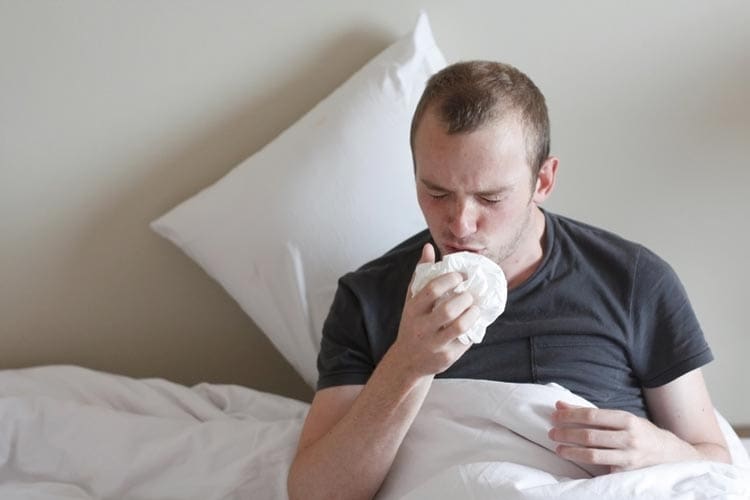A productive (‘wet’ or chesty) cough is when you have a cough that produces mucus or phlegm (sputum). You may feel congested and have a ‘rattly’ or ‘tight’ chest.
Symptoms are often worse when waking up from sleep and when talking. The wet cough may be the last symptom left after a common cold infection.
Depending on the cause of your productive cough, other symptoms may include:
- breathlessness;
- fever;
- cold and flu symptoms;
- wheeze; and
- chest pain.
Causes of chesty coughs
Causes of chesty (productive) coughs include:
- viral infections, including the common cold and influenza (the flu);
- bronchitis;
- pneumonia;
- smoking; and
- chronic obstructive pulmonary disease (COPD).
Other, less common causes of a wet cough include:
- bronchiectasis (a condition where the airways are damaged and abnormally wide causing a persistent, wet cough); and
- cystic fibrosis (an inherited condition that causes excessively thick mucus secretions in the airways).
Diagnosis and tests
Your doctor will ask about your symptoms and perform a physical examination. Tests that may be useful in diagnosing the cause of a chesty cough include:
- chest X-ray;
- sputum analysis (a sample of the mucus or phlegm that you have coughed up can be tested – usually to find out the organism causing a chest infection);
- blood tests; and
- lung function tests.
When should you seek medical advice about a productive cough?
You should seek medical advice if:
- you cough up blood (fresh blood or dried blood like coffee granules);
- you have a high temperature;
- you are short of breath or wheezy;
- the cough is mainly at night;
- you have chest pain when coughing;
- the cough has changed;
- you are a cigarette smoker;
- you have other symptoms such as an ongoing headache, sore ears or a rash;
- you have recently lost weight;
- the productive, wet cough has lasted longer than 5 days;
- the cough affects an infant or child under 5 years old; or
- you have high blood pressure, a heart complaint, respiratory illness (such as asthma), gastric problems, glaucoma, or are taking medicines for other conditions.

